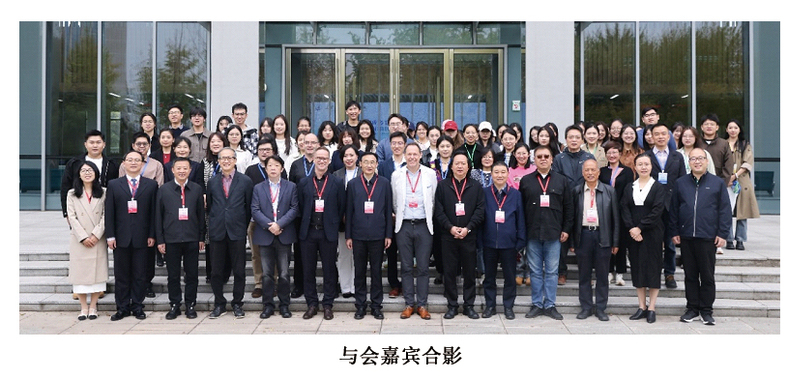On October 19, 2024, the inaugural "Urban and Rural Planning Yanta International Forum" was grandly held at the Weishui Campus of Chang'an University. The forum was hosted by Chang'an University and jointly organized by the School of Architecture at Chang'an University, the School of Architecture at Xi'an University of Architecture and Technology, the Xi'an Urban Planning and Design Institute, and the Northwest Branch of Tsinghua Tongheng Planning and Design Institute. Professor Liu Jiaping, an academician of the Chinese Academy of Engineering, served as the conference chairman.
Experts, scholars, and students from 18 domestic and international universities, including the National University of Singapore, University College Dublin, University of Toronto, Polytechnic University of Catalonia, The Chinese University of Hong Kong, Tsinghua University, Tongji University, Tianjin University, Harbin Institute of Technology, Xi'an University of Architecture and Technology, and Chang'an University, as well as industry elites from the China Academy of Urban Planning and Design, the French National Centre for Scientific Research, the Palace Museum Cultural Heritage Protection Co., Ltd., and multiple planning and design units in Shaanxi Province and Xi'an, attended the event, with over 200 participants in total. The opening ceremony was hosted by Jia Kan, Party Secretary of the School of Architecture at Chang'an University.
Professor Tao Jidong, Vice President of Chang'an University, delivered a welcome speech, warmly welcoming the domestic and international experts, scholars, and young students who traveled from afar. He expressed hopes for in-depth discussions and active exchanges, aiming to contribute wisdom and efforts to the protection and sustainable development of historic towns.
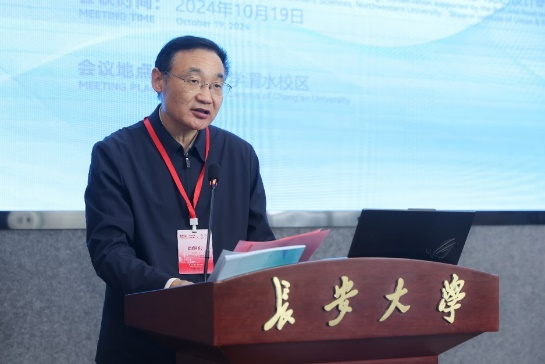
Welcome Speech by Professor Tao Jidong, Vice President of Chang'an University
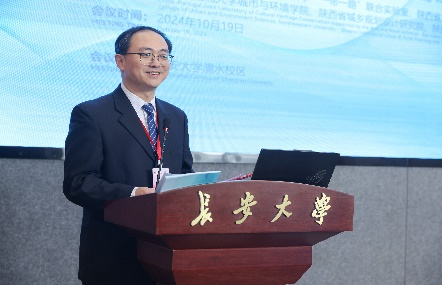
Opening Ceremony Hosted by Jia Kan, Party Secretary of the School of Architecture at Chang'an University
The forum focused on the theme of "Protection and Sustainable Development of Historic Towns along the Belt and Road." Speakers included Professor Wang Caiqiang, Dean of the School of Design and Engineering at the National University of Singapore; Professor Hendrik Tieben, Former Dean of the School of Architecture at The Chinese University of Hong Kong and Chairman of the International Forum on Urbanization (IFoU); Professor Wu Tinghai, Chair of the Department of Urban Planning at Tsinghua University; Professor Zhao Zhiqing from the School of Architecture and Design at Harbin Institute of Technology; Professor Wu Yongfa, Dean of the School of Architecture at Soochow University and Director of the China-Portugal Cultural Heritage Protection "Belt and Road" Joint Laboratory; Professor Eric Tilbury, Dean of the School of Engineering and Architecture at the University of Applied Sciences and Arts of Fribourg, Switzerland; Professor Chang Haiqing from the Xi'an University of Architecture and Technology; Professor Quan Dongji, Leader of the Urban and Rural Historical Heritage Protection Planning Discipline at Northwestern University; and Professor Ding Hua from the School of Architecture at Chang'an University. The reports covered topics such as "Urban Transformation and Architectural Heritage Protection," "Heritage Protection and the Living Environment of Ancient Cities," "Heritage Protection and the Practice of the Living Environment in Hong Kong, Beijing, and Suzhou," "Exploring the Order of Ideal Cities," and "The '2D' Spatial Production of Historic Towns." The presentations included in-depth theoretical discussions as well as rich practical case studies. The report sessions were chaired by Professor Hou Quanhua, Dean of the School of Architecture at Chang'an University, Director Li Qi of the Xi'an Urban Planning and Design Institute, and Professor Chen Xiaojian from Xi'an University of Architecture and Technology.
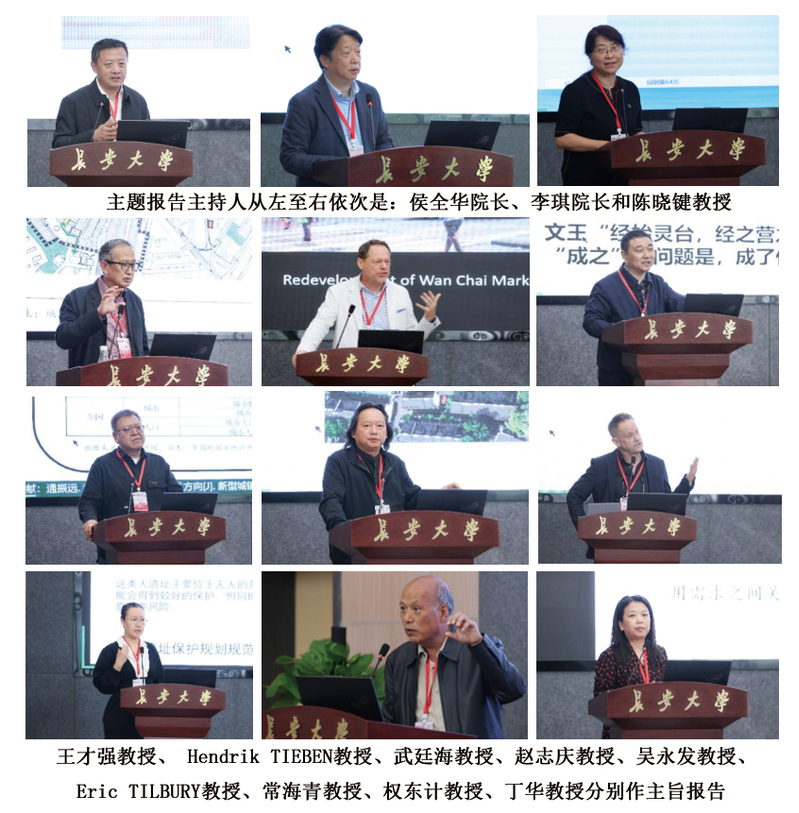
Following the main sessions, parallel forums were held where participants engaged in multidimensional discussions on key issues related to the heritage protection, sustainable development, value recognition, tourism development, and community building of historic towns. Doctoral and master’s students from different countries actively shared their research findings at the student forum, with experts providing individual feedback and engaging in lively discussions. This forum effectively enhanced the students' comprehensive abilities and played a positive role in fostering international talent in the field of urban and rural planning.
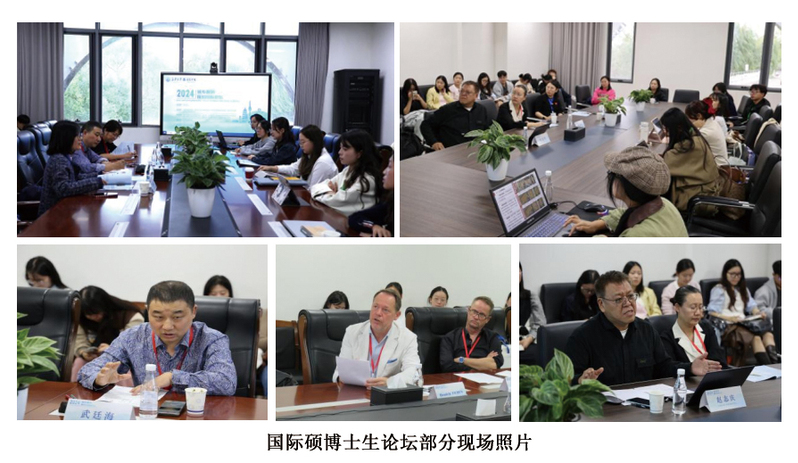
Forum Reports Presented by Various Experts
The success of this forum not only provided a broad platform for experts and scholars in the field of urban and rural planning from both domestic and international institutions to exchange ideas, share experiences, and explore cooperation, but also strongly promoted research exchanges in the field of heritage protection and sustainable development of historic towns. It contributed wisdom and efforts to the deeper implementation of the Belt and Road Initiative.
